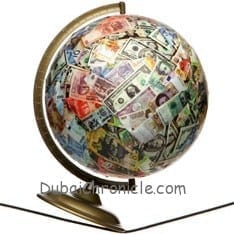
The continuous decline in oil prices casted doubts on the GCC governments’ ability to sustain the planned level of spending in 2015. Western media heralds projected mostly by American analysts economic growth slowdown in the emerging markets. But this projections are often under-researched and concluded with poor understanding of the regional economic climate.
A few facts related to the release of expansionary budgets by Saudi Arabia, Dubai and Oman set aside all such speculations, at least among people in the know. Saudi Arabia has budgeted revenues of SAR 715 Bn (USD 190.7 Bn) in 2015 whereas expenditures are estimated at SAR 860 Bn (USD 229.3 Bn) resulting in a fiscal deficit of SAR 145 Bn (USD 38.6 Bn). In Saudi Arabia, money supply (M2) increased by 3.43% during Q3-14 to reach SAR 1,501 Bn after growing by 2.9% and 4.78% in Q2-14 and Q1-14, respectively, driven by ample liquidity with banks and remarkable growth in deposits base and credit facilities. Meanwhile, Dubai released a balanced budget at AED 41 Bn (USD 11.2 Bn), its largest budget since the global financial crisis, implying a strong growth of 9% as compared to 2014.
In the UAE, total credit facilities further improved to AED 1.18 trillion at the end of the Q3-2014 as the low interest rate and economic recovery led to improvement in lending activities. Whereas, inflation edged to its highest level in more than five years, to report 2.9% in the last 12M-period ending September 2014, as a result of rising rents and food prices.
UAE’s GDP has showed healthy recovery over the last three years to exceed the pre-crisis level by 2011 when it reported a nominal GDP of USD 348.6 billion. As per IMF latest estimates, UAE’s economy grew by 5.2% in real terms during 2013 and is expected to post a strong growth of 4.28% in 2014.
In terms of budget allocations, the focus continues to remain on developing the non-oil sector in order to counter the expected weakness in the oil sector, which accounted for 1/3rd of the economy’s GDP. The non-oil sector is expected to get further boost from increased investment spending for the World Expo 2020. This would have an obvious impact of negatively affecting the current account balance as indicated by the IMF, making the economy vulnerable to oil price shocks.
The upturn in the UAE’s non-oil sector continue to gain momentum as the seasonally adjusted HSBC UAE PMI rose to a record high of 61.2 at the end of Oct-2014, and 58.3 in Nov-2014. This also highlighted a robust labor market and significant job creation in the region. A majority of this growth came from the housing sector, as reflected in UAE Housing Index. Meanwhile, total credit facilities further improved to AED 1.18 trillion at the end of the Q3-2014 as the low interest rate and economic recovery led to improvement in lending activities.
On the other hand, as the economy gathers momentum, inflationary pressure increase.
Dubai Budget for 2015
As the Dubai government prepares to host the Expo 2020, its 2015 budget released at the start of 2015 highlighted the fact that with oil revenues accounting for a merely 4% of total revenues, the government would not rely on oil to plan its finances. The government presented an expansionary budget balanced at AED 41 Bn (USD 11.2 Bn), its largest budget since the global financial crisis, implying a growth of 9% as compared to 2014.
The budget highlights an 11% increase in government revenues as compared to 2014 which relies significantly on increase government fees and fines (74%), whereas tax revenues from customs, excise charges and corporation tax imposed on foreign banks will is expected to increase by 12% during 2015 and account for 21% of the budgeted revenue. On the expenses side, 37% of the budget was earmarked for salaries and 2,530 new jobs for citizens followed by 13% for infrastructure development and the remaining for administrative expenses, capital expenditure and grants, that would largely benefit the Emirati population. Moreover, around 6% of the spending would go into financing the Dubai government’s debts. Meanwhile, although the budget is expected to balance, the government expects to run an operating surplus of AED 3.6 Bn, also the first since it projected a surplus in 2008.
According to the budget statement, over the next five years, the Dubai government plans to maintain the size of its investments in infrastructure. The government is also committed to focus on social development and has highlighted health, education, housing and community development as a priority.




































